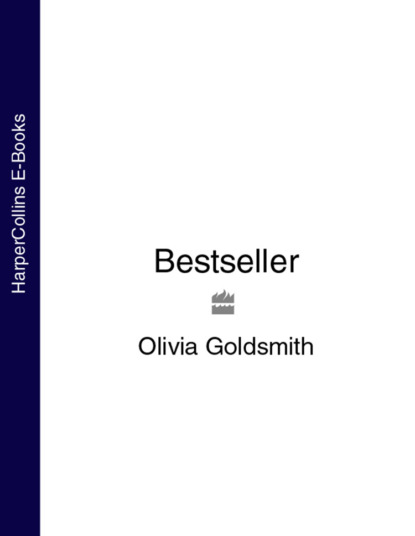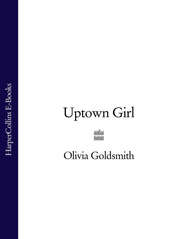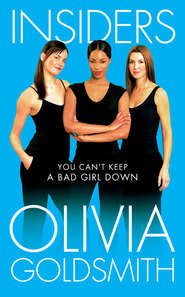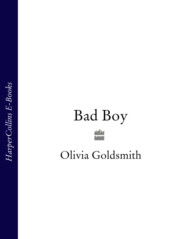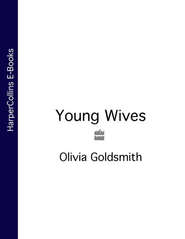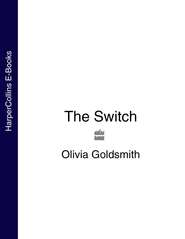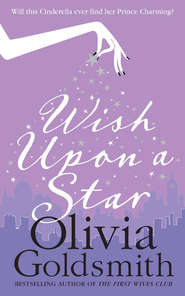По всем вопросам обращайтесь на: info@litportal.ru
(©) 2003-2025.
✖
Bestseller
Автор
Год написания книги
2019
Настройки чтения
Размер шрифта
Высота строк
Поля
“But I always thought I’d publish it in England. After all, I’m English.”
“Yeah, but it’s a book about Americans, and you’ve lived in America. And I know an American editor. I promise you, if I had a sister who was editing in London, I would send it to her. But since I don’t, you’ll have to live with this.”
Camilla laughed. “All right,” she said. “I guess I will live with it.”
13 (#ulink_b5499e21-4f6d-5785-a400-16f2c59ae1ac)
Each publishing season seems to bring us another photogenic female author trying to get funky with pulp fiction.
—James Wolcott
Susann waited while the driver stepped out of the limo and opened the door for her. She had a lot to do today, and the phone call from Kim had been upsetting. Not that Kim had sounded high or even hostile. Actually, her daughter had sounded unusually calm. But was it the calm before the storm? Susann had agreed to meet Kim for tea at the New York Palace, and then she was off to Alf’s office to wrap up some final details, now that her new book was handed in.
Susann stepped out of the limousine and gave her best smile to Ralph, her driver when she was in New York. She walked through the elaborate gate and the hotel courtyard where the eight poplar trees were perennially wrapped in tiny white Christmas lights. She entered the hotel and turned right, walking up one side of the elegant staircase, her gloved hand barely touching the ornate railing. Despite her age, Susann had kept her posture and height thanks to her Alexander technique sessions. It was only her hands … She walked to the entrance of the Villard Room knowing she looked far too young to be the mother of the woman who waited for her.
But Kim looked surprisingly well—at least for Kim. She had gained some weight, but she always did that when she wasn’t on cocaine. Kim looked more like Susann’s second husband than she did Susann. She was chunky and dark-haired. Now Kim must be about the same age that Alan was when Susann had married him. What an ill-fated marriage it had been. Alan had abandoned them when Kim was seven, but not before beating both of them regularly. Perhaps that was another reason Susann didn’t like to see Kim: She reminded Susann of those days and made her feel guilty because of them.
“Hello, Sue,” Kim said. For some reason, Kim had never called her Mommy or Mother. Not even when she was little. Susann hated to be called Sue but said nothing. Didn’t Kim’s greeting have a slightly ironic cast to it? Susann ignored it and merely took a seat opposite Kim. They didn’t kiss.
“How are you?” Susann asked.
“Do you mean am I straight? Yes, I’ve been clean and sober for eight months now.”
“Good. That’s very good.” Susann could have bitten her tongue. She knew she sounded prissy, but what could one say? I hope that this time you won’t go back to your five-hundred-dollar-a-day habit? And, if you do, know that this time I will absolutely not intervene. No. They had established that already.
Susann was relieved when the waiter came and asked for their tea order. “Darjeeling,” she told him with her best smile. Kim asked for chamomile. In moments the waiter reappeared with a trolley of tiny sandwiches—cucumber, smoked salmon, tomato, and cheese. Kim, despite her weight, asked for two of each, but Susann only had one thin cucumber. The waiter placed their teapots before them and left them to face each other. Susann took a bite of her sandwich. “Well,” she said, “you said you had some news.”
“Yes,” Kim said. “I wanted you to know. I’ve written a book.”
Susann paused for a moment, almost choking on her food. “You’ve done what?” she asked.
“A book. I’ve written a book,” Kim repeated. “You’re not the only one who can do it, you know.”
Susann was at a loss for words. Now what? Was she expected to find Kim an agent, to edit her work, to find a publisher? Would the demands on her never end? “I didn’t know that you wrote. You never told me. I’m just surprised—”
“Don’t you remember? I showed you a story I wrote years ago. You cut it to shreds.” Susann tried to recall it. Kim had had so many interests, gone off in so many directions, but never pursued any of them seriously. There’d been figure skating, ballet, and horseback riding. Photography, too. She had decided to go to art school instead of college but then dropped out. Then she wanted a restaurant, which failed, and a weaving studio, but that had come to nothing. All of Kim’s enthusiasms were expensive, short-lived, and ultimately doomed. But when had writing been sandwiched in among the other activities? Susann tried to remember. Was it before the restaurant or after?
“Yes, I remember. You wrote a little story. I edited it for you.”
Kim set her jaw firmly. “It wasn’t ‘a little story,’ Sue. I had worked on it for months. And when I asked you your opinion, you tore it apart.”
“I edited it,” Susann repeated. “If you were serious about it, you would have listened to my suggestions and improved it. That’s what professionalism is all about.”
Kim shook her head. “You decimated me. It’s taken me ten years to get the nerve to try again. And I’ve done it on my own. I’ve finished my first book, and I’ve sold it.”
“You’ve finished it? You’ve sold it?” Susann parroted. She could hardly believe what she was hearing. “To whom have you sold it?”
“To Citron Press,” Kim said defiantly. “And they’ve paid me enough to live on my own for the next year while I work on the next one.”
Susann stared at her daughter, thunderstruck. Why in the world had Kimberly chosen this, of all things? And what was she to say? “Well. Congratulations. I hope you allow me to read it.”
Kim smiled. “You’ll get the first reader’s copy,” she said. Reader’s copies were the typeset, uncorrected paperbound editions of a book that went out to critics and reviewers before publication. “Maybe you’ll give me a blurb,” Kimberly said, smiling. “I think you’ll like it. The main character is a famous woman author.”
Susann felt her own smile disappearing. She thought of the way Cheever’s children had written about him. And she was no Cheever. She had read the Danielle Steel unauthorized biography by Nicole Hoyt, and the similarities between her and Danielle were a bit frightening. They had both married and become mothers at a young age; they both had second husbands who were sex perverts, but, Susann thought to herself, at least Alf wasn’t a drug addict the way Steel’s third husband had been; and she hadn’t remarried and had five more children as Steel had. She felt her face flush; unlike Danielle, she may have to worry that her unauthorized bio would be written by her daughter. “Well, I wish you had let me know earlier. Perhaps I could have helped you. Or maybe Alf could have.”
“Fuck Alf,” Kim told her. “I wouldn’t accept anything from that dirty old bastard.” Susann shook her head. She hoped Kimberly wasn’t going to bring all of that up again. The legitimate tragedy in their lives had been that Robert Edmonds, Susann’s third husband and Kimberly’s stepfather, had molested Kim. But since then, Kim had seen advances in everyone from the gardener to her teachers at school. She’d even accused Alf of inappropriate behavior.
Susann tried not to roll her eyes, but failed. Kimberly leaned over and hissed at her. “Don’t give me that look. Don’t belittle me, and don’t try to make me feel like I’m crazy. I’ve written this book and I’ve sold it, and I did both of those things myself. And I don’t want anything from you or from Alf, or from my father or from my stepfather, either.” She paused. “Nothing. Except my name.”
“Your name?” Susann repeated.
“That’s right. I’m using my stepfather’s. He owes me that, at least. My name. Kimberly Baker Edmonds. That’s the name I’m using. So it looks like you will have a little more competition, Sue.”
14 (#ulink_dd80e4c3-6eb6-582d-8481-177b1709739c)
The writer is always tricking the reader into listening to their dream.
—Joan Didion
Judith woke up with a smile on her face, which was unusual. Since she’d finished the book she’d felt rather bereft. Then she remembered: Daniel had woken her up when he came home from his writers’ group last night. He’d been hungry for her, and she had fallen asleep feeling well and deeply loved.
She turned over in bed. She felt absolutely adorable cuddled up in the bedclothes. Daniel was already up and showered, dressed in his underpants, his back to her, rooting through his closet. She hoped he’d look over at her, come back to bed and kiss her or hold her. “Where’s my blue sports coat?” he asked instead.
“Oh. I think it’s in my closet,” she admitted. Judith felt a stab of guilt. Daniel was so particular about his clothes. He had asked her over and over again to remember to take them out of the plastic film and hang them up in his closet when she brought them back from the cleaners. Too often she forgot. Like today. She had meant to take the hanger from her hall closet, but when she had struggled up the stairs with the groceries, the dog, and the dry cleaning, she had temporarily stuck it there and never gotten back to it. Somehow, though she was home all day, there was so much she didn’t get to.
Judith didn’t know why she felt so sad lately. Somehow, since she’d finished the book, she had spent most of her time in a daze, finding herself with a mug of coffee cooling in her hand, staring out the grimy windows. She didn’t know what she’d been doing, what she was looking at or looking for. But she knew she didn’t feel good.
Maybe it was because she had finished the book. She told herself that was it. That this was normal for a writer, if that was indeed what she was. Also, she was anxious about getting published because maybe, just maybe, they shouldn’t be published.
Judith had done her best with the book, but she wasn’t sure if it was true. Of course it was fiction, though it was based on an incident from real life. But the truth of research was not what Judith was thinking of. She—with Daniel’s help—had created Elthea from her own imagination, and she wasn’t sure that Elthea was true—not in the way that great characters had been true for Judith. Growing up, nothing had been more important to Judith than reading: She had widened her horizons, escaped her boredom, found her friends, and experienced life through books. Now she wondered if she had contributed, in a small way, to that long list of heroines that for her included Jane Eyre, Anna Karenina, Elizabeth Bennet, Dorothea Brooke, and a dozen contemporary ones whom she had loved. Judith knew she was no Flaubert, no George Eliot. But if she wasn’t a genius, she didn’t want to be a liar, and she was afraid that she might be. She had had to do things—write things—because Daniel demanded it. He said it made the book more commercial. But Judith was torn. Aside from Daniel, books were the only thing Judith truly loved. She would hate to betray either one of them.
Daniel was buttoning his shirt—one of the few French-cuffed shirts he had. He fumbled with the cuff link. She had bought those for him for his birthday, and she smiled to see him use them. He rarely wore a formal shirt, preferring his oxford cloth button-down or flannel ones. Judith sat up, about to get him his jacket, but he slipped into his good woolen trousers and was out of the room before she could manage to untangle herself from the duvet. She met him in the hallway, where he was angrily discarding the polyethylene and struggling into his jacket. He had a new, beautiful briefcase waiting at the door. When had he gotten that? she wondered. And how would they pay for it?
“Boy, you look good,” she said. And it was true. Daniel rarely bothered to dress up, but he looked adorable in his good clothes. Now he didn’t say anything—he just looked at her, and all of her sexy, adorable feelings vanished. Judith looked down at herself, in her creased, bedraggled nightgown and her tousled hair. Her cold bare feet—never pretty at the best of times—looked almost blue on the dark linoleum. She saw Daniel take her in, and she saw herself through his eyes. It was not a pretty picture.
“I’ve got to go,” Daniel said. He picked up his new briefcase, pecked her on the cheek, and was gone.
Daniel took the train into New York. He wanted to use the time to review the manuscript and check, once more, Cheryl’s typing job. But it was very competent, very professional. Cheryl was a much better typist than Judith would ever be. Daniel wondered what else she was better at. What was the Thomas Wolfe line? “I can always find plenty of women to sleep with but the kind of woman that is really hard for me to find is a typist who can read my writing.” Daniel almost laughed. The train clacked along, the car occupied only by Daniel and a few lawyers on their way from Albany. Daniel wondered idly if he needed a lawyer. He would ask Alfred Byron today.
Alfred Byron was one of the movers and shakers among the heavy New York literary agents. Along with Mort Jank-low, Lynn Nesbit, Owen Laster, Binky Urban, Esther New-berg, Andrew Wylie, and less than a handful of others, Byron was famous for making seven-figure deals. Daniel had had the audacity to invite Byron up to the school, first to speak on a panel and then, later, to chair another one. Daniel had been as surprised as anyone that Byron had accepted, but the old man seemed flattered and showed up. It still surprised Daniel that some people were so easily conned by a little attention from academia. Because, apparently, the invitations had been enough to ensure this meeting. And not many unpublished writers got in to see Alfred Byron. He represented Susann Baker Edmonds and a few other commercial megazoids. Not exactly “writers”—more like people who filled pages that other people bought by the millions of copies.
Daniel looked at the manuscript. Was this a megazoid in the making? “In Full Knowledge by Jude Daniel,” had been typed in large, boldface letters by the obliging Cheryl. Daniel winced guiltily. He reminded himself that he hadn’t done anything he wasn’t supposed to. He may have encouraged Cheryl, but wasn’t that a teacher’s job? And he had not asked her to type this for him. She had offered. It wouldn’t change her grade. She was going to get an A anyway. He hadn’t done anything wrong.
Then why did he feel so guilty? I am allowed to have feelings, he reminded himself. As long as I don’t act on them. And he hadn’t. He hadn’t acted on them. That was the important thing. He hadn’t told Judith, either. Not about meeting Cheryl for coffee or getting Cheryl to retype the manuscript or …
Well, he hadn’t told Judith about this meeting. Maybe he should have. But why get her hopes up for no reason? It wasn’t as if he was lying to her. Not at all. He was doing this for her, for both of them, and if he failed, if he was shot down or rejected, there was no need to share that humiliation with Judith. It would only depress her, and God knows, she was depressed enough.
Daniel knew the manuscript was his ticket out of the endless, unrewarding life he’d somehow gotten stuck in. And he knew he had to get out.





